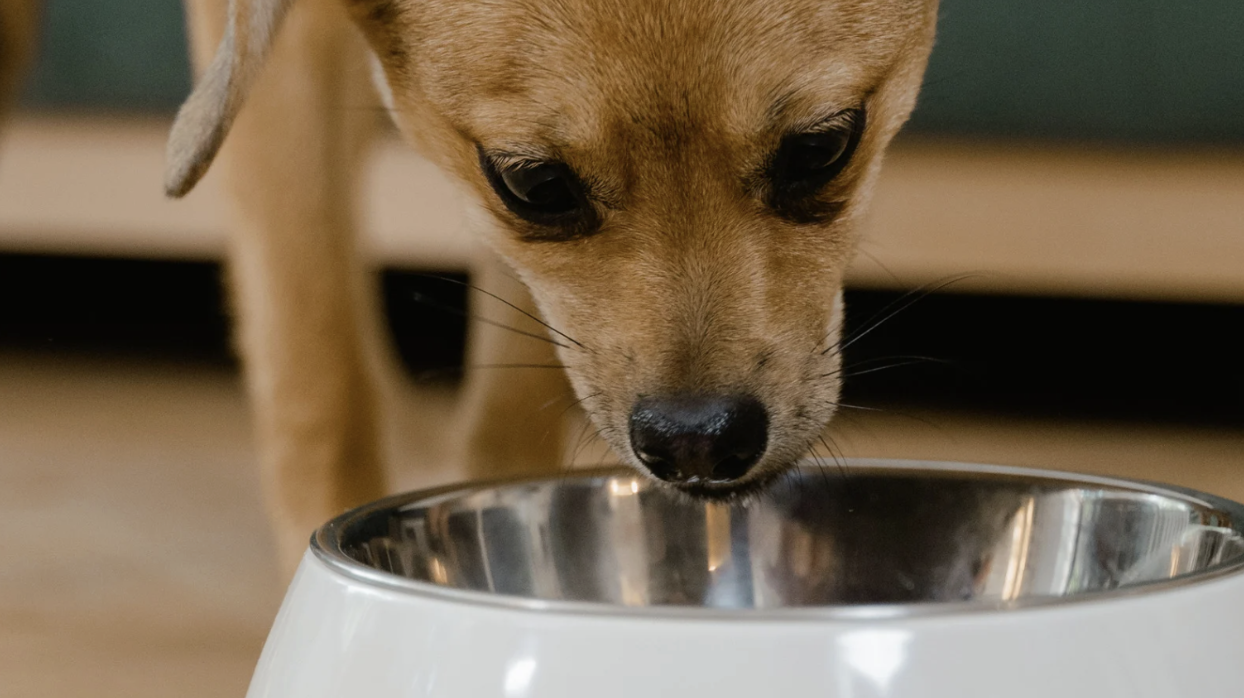


Is your dog experiencing frequent vomiting, diarrhea, or a sensitive stomach? In this guide, we dive into the most common gastrointestinal (GI) issues in dogs, their causes, and how to manage and prevent them. From diet tips to the role of probiotics and personalized nutrition, we’ll explore proven solutions to help your pet feel better. Petsona’s expert veterinary team breaks down how proper, gentle nutrition can support digestive health, especially for dogs with chronic GI sensitivities. Learn how Hong Kong dog parents can take charge of their pet’s gut health today.
Gastrointestinal (GI) issues are one of the most common health concerns in dogs, ranging from occasional dietary upsets to chronic, life-impacting disorders. Many well-meaning owners struggle with how to manage GI symptoms and understand what their dog really needs.
This article provides a science-backed overview of the causes, symptoms, and nutrition-based solutions for canine GI problems—helping pet parents make informed choices.

Digestive issues in dogs can stem from a wide range of factors, including sudden dietary changes, food intolerances, infections, and ingestion of foreign objects. Stress and overuse of antibiotics also disrupt the gut microbiome, further exacerbating GI problems. The most common symptoms include diarrhea, vomiting, gas, bloating, and loss of appetite. Addressing these issues early with the right diet and vet care is key to long-term health.

GI disorders can be acute (sudden onset) or chronic (persistent or recurring), and may present with:
If your dog exhibits these symptoms for more than 48 hours, or if the signs are severe or frequent, veterinary diagnostics are critical.

Gastrointestinal issues can arise from a variety of factors:
Some breeds are more predisposed, such as German Shepherds (EPI, IBD), French Bulldogs (food sensitivity), and Yorkshire Terriers (tracheal and gastric sensitivity).
It's important to distinguish between a temporary upset and a chronic condition:
If symptoms recur more than once a month, a clinical workup (e.g., fecal testing, bloodwork, GI panel) is warranted.
Diet is foundational for both prevention and management of GI issues. However, there is no one-size-fits-all GI diet. The best choice depends on:
Highly digestible diets with moderate fat, controlled protein, and fermentable fibres support recovery and microbiome balance.
Fiber isn't just "bulk" — it plays key roles in stool formation, gut motility, microbiota balance, and mucosal repair.
Blended fibre sources allow diets to target both mechanical function and microbiome support.
Disruption of the gut microbiota (dysbiosis) is common in chronic GI disorders. To help restore balance:
These functional ingredients can be incorporated through supplements or therapeutic foods tailored for GI support.
Soft, easy-to-digest food formats like gently cooked or dehydrated meals reduce the digestive burden. Avoid:
Even when switching to a better diet, a 5–7-day gradual transition is key to prevent further upset:
A bland, digestible diet is essential for dogs with digestive sensitivities. Petsona’s gently dehydrated meals are made with fresh, whole ingredients that retain up to 90% of their original nutrients. Unlike processed kibble or canned foods, our personalized meals are free from preservatives and artificial additives — a better choice for sensitive stomachs. Certified under AAFCO and FEDIAF standards, our meals are easy to digest and great for daily feeding.
Switching to a gentle, science-backed formula can transform your dog’s digestive health in just weeks.

Gastrointestinal (GI) problems are common in dogs and often caused by diet changes, stress, infections, or food sensitivities. These issues can seriously affect a dog’s quality of life if left untreated. A proper, gentle diet rich in natural ingredients and beneficial probiotics can make a big difference. Petsona’s personalized dehydrated dog food is specially crafted to be easy on sensitive stomachs, helping to reduce bloating, vomiting, and irregular stools.
At Petsona, we offer a range of condition-specific GI diets that support the diverse needs of dogs with digestive issues. All our GI formulas are gently dehydrated, contain no artificial additives, and are tailored to support digestive function, mucosal repair, and microbial diversity. They meet AAFCO and FEDIAF nutritional profiles and are available with veterinary support.
1. How do I know if my dog’s stomach issues are serious?
If your dog is vomiting, has persistent diarrhea, or loses interest in food for more than 24–48 hours, you should see a vet. Other than that, if your dog frequently has loose stools, gas, or vomits after eating, they might have a sensitive stomach. These signs suggest difficulty digesting certain ingredients or food types. Switching to minimally processed meals with limited ingredients and added probiotics can help soothe their digestive tract.
2. Can food really help with chronic digestive problems in dogs? What’s the best food for dogs with GI issues?
Yes. A tailored, digestible diet free from common irritants (like grains, fillers, or artificial additives) can significantly improve gut health. For dogs with gastrointestinal problems, look for easily digestible, low-adulteration meals like gently cooked or dehydrated options. Petsona’s dehydrated dog food is specially formulated to be gentle on the stomach while retaining essential nutrients, ideal for daily feeding and long-term gut health.
Key References
German, A. J. (2010). Food allergy in dogs and cats: a review of the literature. Vet Dermatol, 21(5), 377–382. https://doi.org/10.1111/j.1365-3164.2010.00899.x


